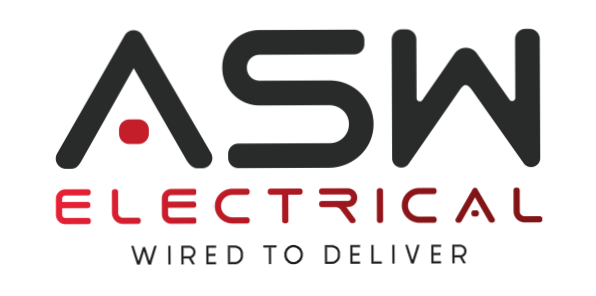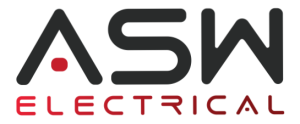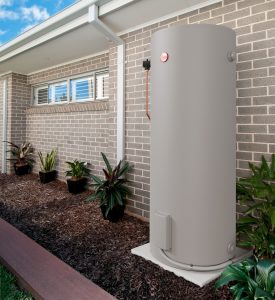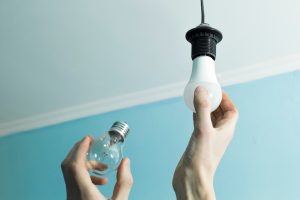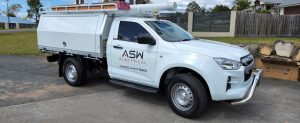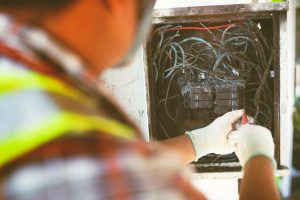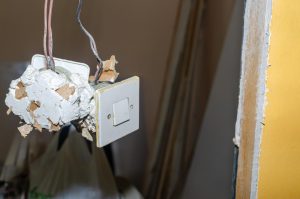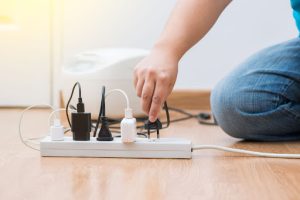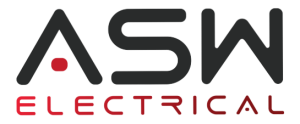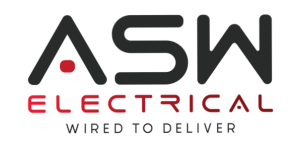As Queensland braces for the impending storm season, marked by heavy rains, floods, and cyclones, it’s crucial for residents to prioritise electrical safety. Our heartfelt thoughts are with those already affected by these natural calamities. In these trying times, staying informed is key.
Keep abreast of the latest warnings and advice through reliable sources like the Bureau of Meteorology, Queensland Fire and Emergency Services, Queensland Police, and local media outlets. Remember, in emergencies that threaten life or property, dial 000.
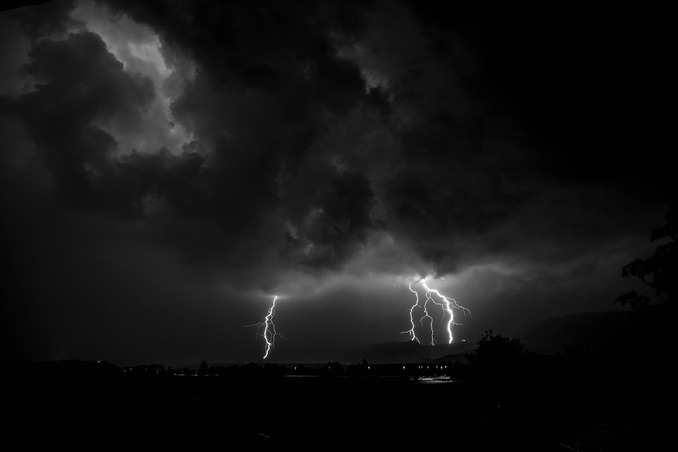
Preparation Before the Storm
- Regular Safety Checks: Install a safety switch and conduct regular tests.
- Emergency Readiness: Familiarise yourself with the locations to turn off power, gas, and water supplies.
- Secure Electrical Equipment: Store unused electrical devices securely.
- Outdoor Equipment: Unplug and safely store outdoor TVs and aerials and store them in a dry location.
- Approaching Storms: Disconnect all electrical appliances and shut down solar PV systems using the safe isolation procedure.
During the Storm
- Stay Informed: Tune into your local radio for updates.
- Power Loss Protocol: Turn off outlets and unplug electrical devices.
- Telephone Caution: Avoid using fixed telephones during thunderstorms to prevent electric shocks.
- Flood Precautions: If floodwaters are expected, relocate electrical equipment to higher ground.
- Safety First: Maintain a safe distance from power lines, trees, and water bodies.
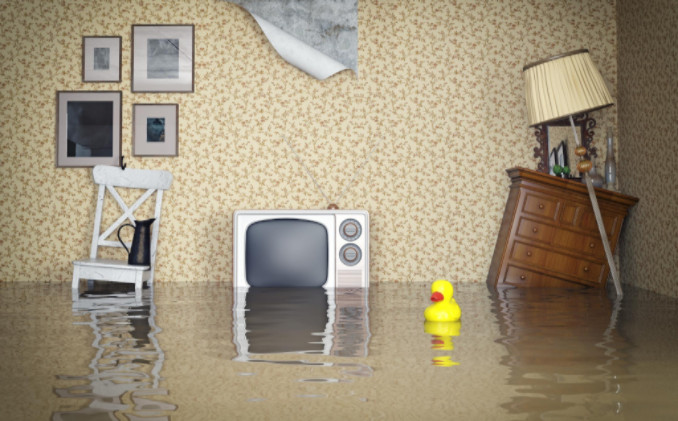
Post-Storm Cleanup
- Monitoring Local Radio for Updates: It’s imperative to regularly tune into your local radio station to receive any additional warnings or guidance related to safety and emergency procedures.
- Dealing with Power Lines: Exercise extreme caution around fallen, low, or damaged power lines. It is critical to report these hazards immediately to emergency services or to your local electricity distribution company.
- Avoiding Electrical Hazards: Ensure to steer clear of electrical signs, street lights, electrical cables, foil insulation, and any other conductive materials that may be present in your vicinity. These objects could pose serious risks if they have been compromised.
- Handling Damaged Switchboards: If a switchboard in your vicinity has been damaged by water, fire, or lightning, it is crucial to avoid contact and alert others to do the same. Damaged switchboards can present significant electrical hazards.
- Legal and Safety Considerations for Electrical Work: Undertaking electrical work independently is both illegal and dangerous. For any electrical needs, it is mandatory to employ the services of a licensed electrician. This ensures compliance with legal standards and maintains safety.
- Solar Power System Precautions: If your property is equipped with a solar power system, it is advisable to refrain from accessing the roof. Additionally, maintain a safe distance from solar panels and their cables to avoid potential hazards.
These guidelines are essential for ensuring your safety in situations involving electrical risks. It is crucial to follow them diligently and encourage others to do the same.
Property and Connection Damage
If your property or connecting line has suffered damage due to a storm or flood, it may be necessary to perform verification tests on your switchboard, wiring, equipment, and appliances before reconnecting them to ensure that the electrical circuits are still functioning correctly. This task should be carried out by a licensed electrician, and obtaining a test certificate will be necessary for your local electricity distribution provider to restore your service.
For additional information on storm safety and recommended actions before, during, and after a storm, please refer to the resources available at Queensland Disaster Management site.
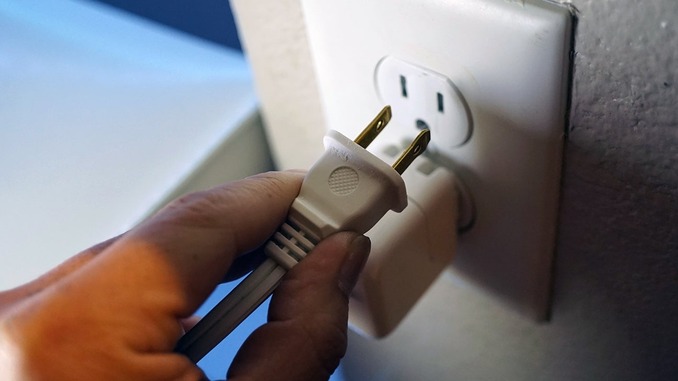
PV Solar Systems
In the aftermath of a storm, flood, or cyclone, it’s imperative to approach your solar photovoltaic (PV) system with caution. Remember, even when disconnected from the network supply, these systems can still produce voltage during daylight hours, making the PV cells and their wiring potentially live and dangerous.
For safety and compliance, follow these critical steps:
- Seek Professional Inspection: Prioritise having a licensed electrician examine your solar PV system. Any necessary repairs should be made to ensure its electrical safety before reactivating the system. Trust professionals like ASW Electrical, renowned for their expertise in QLD.
- Maintain a Safe Distance: Post-event, refrain from attempting to turn off the solar PV system yourself. It’s essential to keep a safe distance from the solar panels and their wiring to avoid any risk of electric shock.
- Engage with an Electrician: Have your system thoroughly checked by a qualified electrician. This step is not just about repairing visible damage; it’s about ensuring that the entire system is safe and functional.
- Follow the Restart Protocol: Only after your electrician has inspected the system and confirmed its safety, should you follow the recommended start-up procedure.
Electrical Appliances and Equipment
When dealing with water-damaged electrical equipment, it’s crucial to understand the risks involved, including potential electric shocks and fires. To ensure safety, follow these guidelines:
- Dispose or Repair Small Appliances: Electrical items like kettles, toasters, and televisions, once water-damaged, become hazards. It’s advisable to either safely discard them or have them repaired by a licensed electrician. Don’t attempt to use or repair these items yourself, as this could lead to serious safety risks.
- Inspect Hard-Wired Appliances: For larger, hard-wired appliances such as air conditioners or stoves, a thorough inspection by a licensed electrician is necessary. This is especially important if you intend to continue using these appliances. The electrician will assess the damage and determine whether the appliance is safe to use or needs repair. Remember, reconnecting the power supply to these appliances should only occur after a comprehensive safety check and clearance from a professional.
Always prioritise safety when dealing with water-damaged electrical equipment to prevent accidents and ensure the ongoing reliability of your electrical systems.
Looking for a reliable electrician in Brisbane? Choose ASW Electrical, where over 25 years of experience meets dedication to swift, affordable service.
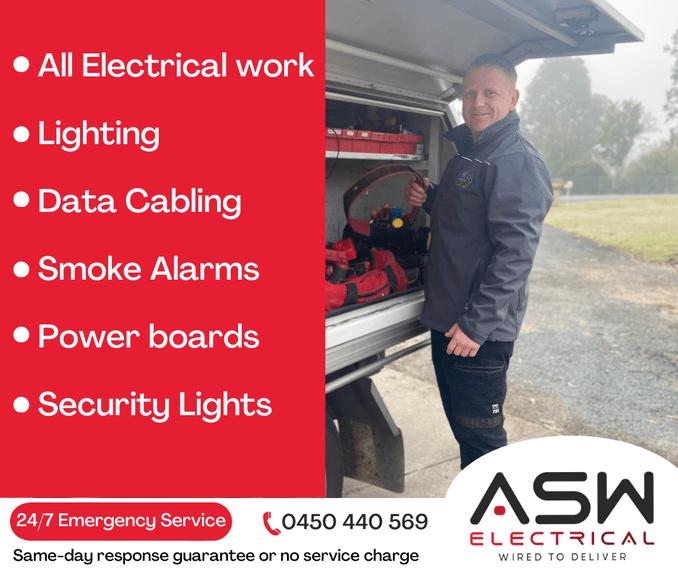
Our expert team ensures your satisfaction with a same-day response promise and a lifetime warranty on all work. For all your electrical needs, trust ASW Electrical, your go-to Emergency Electrician in Greenbank, Logan, Ipswich, Mount Gravatt, Springfield and Carindale, Brisbane, QLD.
📞 0450 440 569
💌 info@aswelectrical.com.au
📍 27 Border Cres, New Beith QLD 4124, Australia
🌐 https://aswelectrical.com.au/
